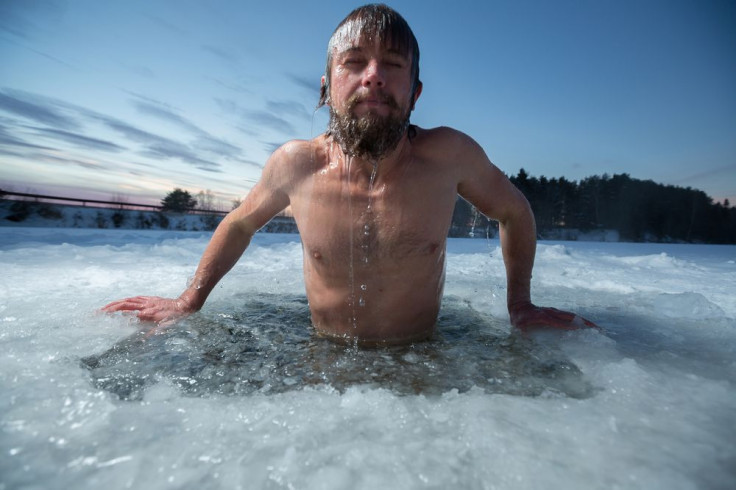A Post-Workout Ice Bath Won't Speed Up Muscle Recovery — It Might Hinder Muscle Growth Instead

For years, coaches at all levels have preached cold water immersion, also known “cryotherapy,” to athletes who have trouble recovering from muscle soreness. However, more and more research is aimed toward dismissing this chilly fitness myth. A recent study, conducted by researchers at Queensland University of Technology and The University of Queensland, has found that a post-workout ice bath is not only an ineffective treatment for post-workout soreness, but it may also hinder muscle development.
"We found that cold water immersion after training substantially attenuated, or reduced, long-term gains in muscle mass and strength," said Dr. Llion Roberts, from UQ's School of Human Movement and Nutrition Sciences, in a statement. "It is anticipated that athletes who use ice baths after workouts would see less long-term muscle gains than those who choose an active warm down. At this stage we are unsure why cold water immersion had this effect, but a reduction of muscle blood flow could be one mechanism.”
Roberts and his colleagues recruited 21 physically active men who were asked to participate in a strength training exercise circuit two days a week for 12 weeks. Following each workout, half of the participants were asked to endure a 10-minute-long post-workout ice bath at 50 degrees while the other half actively cooled down on an exercise bike. Men in this active cool down group experienced a greater increase in muscle strength and mass at the end of the 12 weeks, compared to the ice bath group.
During the second part of the study, researchers recorded muscle biopsies on men who had performed single-leg strength exercises followed by a post-workout ice baths or active cool down exercises. Results showed that the activity of satellite cells and pathways necessary for muscle growth were “blunted” up to two days after partaking in exercise and a subsequent ice bath. Satellite cells, also known as skeletal muscle stem cells, are considered indispensable to skeletal muscle regeneration.
"This is the most comprehensive study of its kind and the results suggest individuals who use strength training to improve athletic performance, recover from injury, or maintain their health, should reconsider using cold water immersion as a recovery aid,” explained Dr. Jonathan Peake, from QUT's School of Biomedical Sciences.
A similar study conducted by researchers from the University of New Hampshire included 20 college-aged men who participated in downhill running exercises. Following 40 minutes of intense physical activity, half of the group agreed to submerge themselves in a recycling bin filled with thigh-high with ice water at 40 degrees. The research team found no differences in quadricep strength, thigh circumference, or perceived soreness among members of both groups. While they found that some members of the ice bath group showed lower levels of plasma chemokine ligand 2, a marker of inflammation, the results were statistically insignificant.
Source: Peake J, Coombes J, Roberts L, et al. Post-exercise cold water immersion attenuates acute anabolic signalling and long-term adaptations in muscle to strength training. The Journal of Physiology. 2015.



























